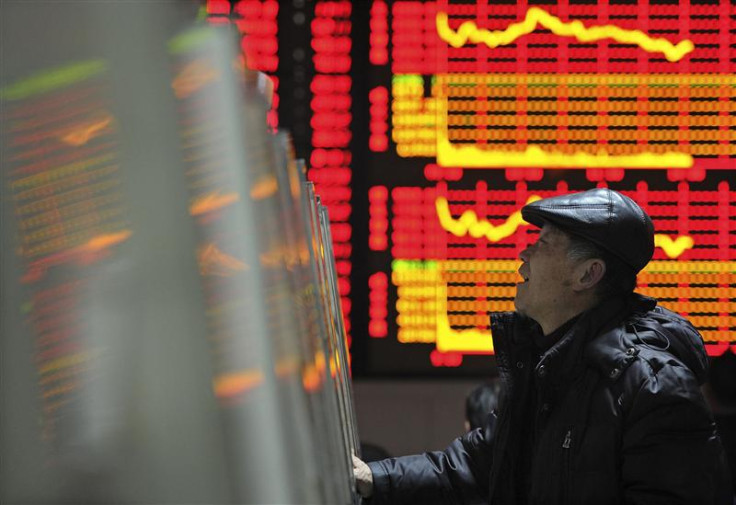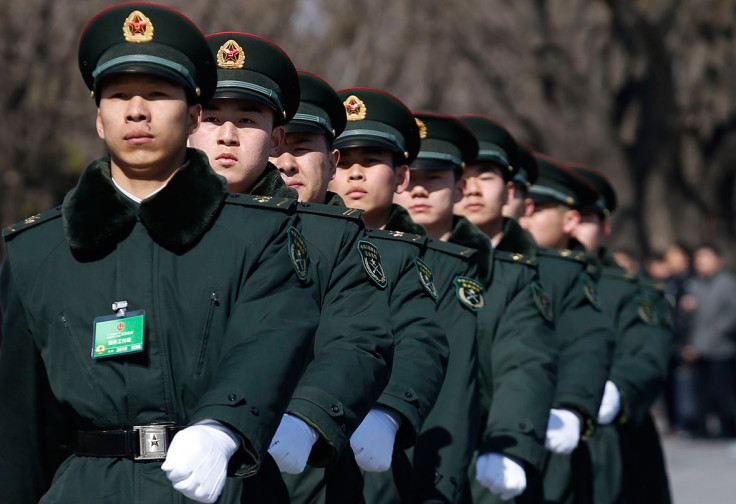Lessons from Falun Gong: How will China's 90 million share traders react to stock market turmoil?

The Chinese government's direct intervention in its stock market is beginning to solicit major concern from the financial world. With millions of Chinese invested in the flagging exchange, could the panic be about to spread?
Background
Yesterday (9 July), the China Securities Regulatory Commission (CSRC) barred major shareholders from selling shares on the Shanghai Composite Index for the next six months as it attempts to halt a selling frenzy that has wiped out more than 30% – some $3tn (£1.9tn, €2.7tn) – of China's equity market value over the past month.
This followed moves that saw the Chinese government inject billions into blue chip stocks and more than a thousand firms suspend trading in their shares, freezing trillions in the process.
The share sale ban is aimed at maintaining "stability of the capital market and (to) earnestly protect investors' legal rights," the commission's statement said. Any violations of the ban will be "severely" dealt with, the regulator said, without specifying the penalties, effectively threatening to arrest those wishing to sell shares.
State intervention in what should be a much freer market has caused major concern among financial experts.
Concern
Jim Reid at Deutsche Bank described the move as a "truly breathtaking initiative".
The immediate effect saw the Shanghai composite post its biggest one-day gain since 2009, but longer term, investors are worried.
"The fact that share trading in China is currently being conducted in conditions that bear little resemblance to a properly functioning market should give investors significant cause for concern," said Jane Foley at Rabobank.

Perhaps an even greater cause for concern is the fact that an army of 90 million individual Chinese are directly invested – many via taking out debt to pay for shares – and exposed to the fluctuations.
Observers have suggested that the Chinese government is taking such drastic measures partly because, after having fostered participation in burgeoning home-grown companies via the stock market, it is keen to avoid millions of angry investors aiming their ire at the Communist Party of China (CPC).
Falun Gong
An unlikely parallel is to be found in Falun Gong. Initially encouraged by the Chinese government, the spiritual movement fell out of favour with the state in the mid-90s, leading to prohibitive measures being imposed on its practitioners.
In response, the country's rulers were greeted with more than 10,000 people protesting in Beijing against the banning of Falun Gong books and pronouncements from official news agencies denouncing the movement.
While the comparison between state-sponsored spiritual wealth and state-sponsored material wealth is not exact, the fall out could be: public shows of disaffection is precisely what the Chinese government does not want.
The numbers, too, are not dissimilar: Falun Gong had more than 70 million followers.
Debt
What may exacerbate the problem is the fact that many Chinese bought shares with loans.
Mark O'Byrne of Goldcore said: "At the heart of the problem is the use of credit by 'investors' to take up larger positions than they might have if they were gambling only with their savings. It was this trading on leverage which ignited the bubble and it is this same dynamic which is now applying downward force."
Trading with leverage was tightly regulated in China until 2010 but restrictions have been gradually eased, although speculators still have to stump up 50% of their own cash.
Prior to the recent falls, the surge in the Chinese stock market last year, which many called an equity bubble, was effectively funded by credit.
Global repercussions

In a wider context, events in China are significant because, as Nigel Green of deVere Group puts it: "It will send shock waves throughout global capital markets, not least because China is the world's second largest economy and one of the largest consumers of commodities and other goods sold by other countries."
In the UK, John Longworth, director general of the British Chambers of Commerce, warned that economic volatility in China could have a "profound effect" on British business.
"China is a major trading partner and a significant investor in British goods and key infrastructure projects. Businesses will want to see and hear more from the government and the Bank of England on their plans to support and protect British firms and ensure key, long-term projects – such as HS2 – are not compromised."
The full extent of the measures will not likely be known until after the ban is lifted and the delisted companies relist.
Michael Every at Rabobank said that recent actions by the Chinese government are "hardly going to encourage investors to crawl into it [the stock market] again in the future when the 'walls' are taken down."
© Copyright IBTimes 2024. All rights reserved.









